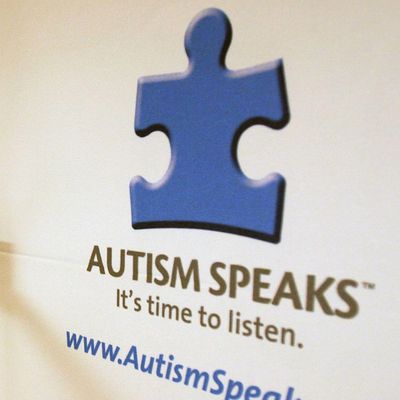
Autism Speaks, a leading autism advocacy group in the U.S., has quietly made a small but potentially meaningful change to its focus: According to a new mission statement, it will no longer be seeking a “cure” for autism spectrum disorder. As reported late last week by the developmental-disability news organization Disability Scoop, with the revamped mission statement, Autism Speaks “strikes a markedly different tone,” notes reporter Michelle Diament. “Gone are terms like ‘struggle,’ ‘hardship’ and ‘crisis.’ Also absent is any mention of seeking a cure for the developmental disorder.”
This is a big deal — or, rather, it could be, said Steve Silberman, the author of NeuroTribes: The Legacy of Autism and the Future of Neurodiversity. The new focus marks a “small but potentially significant step forward for a huge organization with a very troubled history,” Silberman said. “But they have a lot of bad karma to burn off before autistic self-advocates will be inclined to trust them.”
Silberman means a few different things when he refers to that bad karma, among them the way the organization has long framed autism as an “epidemic,” or an “urgent global health crisis.” Borrowing language typically used to describe the spread of infectious disease seems, on the surface, like a useful metaphor, but its usage came with some hard-to-shake consequences. (Once again, a reminder that metaphors matter.) Such a vision of autism “understandably terrified parents,” Silberman said, and, beyond that, it distracted from the scientific evidence that has called into question that notion of autism as an “epidemic.” As he details in his best-selling book, what seemed like a sudden and inexplicable increase in children with autism can be explained by the arrival of three important changes that all happened around the same time: “radically broadened diagnostic criteria, more widely available screening tests, and greater community awareness of the condition.”
The other long-standing problem, according to both Diament and Silberman, has been the autism organization’s lack of input from people who, you know, actually have been diagnosed with autism spectrum disorder. But that’s changed recently, as both Stephen Shore and Valerie Paradiz, two well-respected “autism self-advocates,” joined the board of Autism Speaks last year. Other noteworthy changes in leadership, Diament reports, include the departure of the organization’s chief science officer and the death of Suzanne Wright, who founded Autism Speaks with her husband, Bob, shortly after their grandson was diagnosed with autism in 2004.
The change in focus could be an encouraging step forward for a large and influential advocacy group, but “the proof will be in the pudding: the research agenda,” said Silberman, who’d like to see funding go toward studying issues impacting the lives of people with autism, including housing, employment, and treatment for dangerous epileptic seizures. It’s issues like these that must be addressed “before the significance of the change in the mission statement can be accurately gauged,” he added. This will be well worth keeping an eye on.




